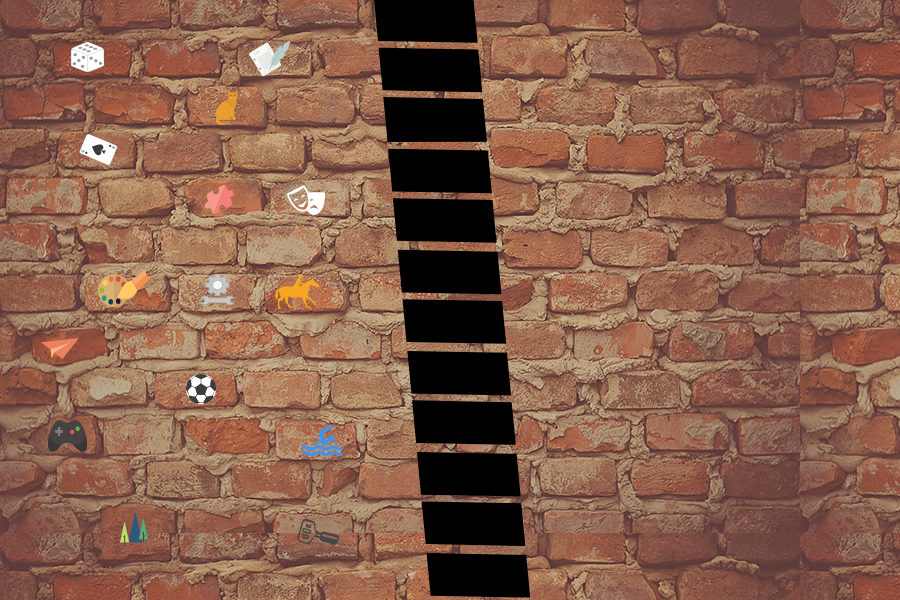40 years later: Are we still just another brick in the wall?
Pink Floyd’s sensational song is still just as — if not, even more — relevant today.
March 31, 2021
They tell us we are the next generation. A representation of greatness, a symbol of hope, a future of prosperity. They tell us we have the power to fix all the wrongs in this world, make it a better place for all. And then they throw us into the deep end of the pool, expecting us to stay afloat. They don’t even flinch when we become just another brick in the wall.
Pink Floyd shattered the traditional notion of a song with their album “The Wall,” which is widely regarded as one of the best concept albums ever produced. Its most popular single, “Another Brick in the Wall (Part 2),” issued a provocative social statement on the British education system in the 1950’s.
Although Waters wrote “Another Brick in the Wall” about another country and an earlier generation, the song’s lyrics and key concepts stay relevant to our own education system today.
We don’t need no education, we don’t need no thought control
Our educational institutions have systematically failed to adapt to change. They continue, even during these unprecedented times, to evaluate student performance based solely on rote memorization rather than progress and learning. We are labeled by our grades, which seems like the ultimate determinant of our futures. Our stomachs drop when a teacher hands back a grade, and we realize we underperformed on an exam. But shouldn’t failing be a learning experience rather than a punishment? And who decided that letter grades were supposed to determine what we could achieve in our lives? School is not supposed to be a series of memorized algebraic calculations or properly formatted, multi-paragraphed english essays; it’s intended to help us acquire new knowledge and skills, to teach us to collaborate and, most importantly, to inspire us.
However, Waters paints a bleak, but accurate image of the education system in his lyrics; he explains that education revolved around a set of rigid ideas to which all students were expected to conform and teachers were meant to enforce. Just like Roger Waters and his generation, we are being taught to put our heads down and color inside the lines. But what we truly need is for education to encourage free thinking and critical thought, releasing students and teachers from the confines of the curriculum.
The reality of our current educational system: we don’t need this type of “education.”
No dark sarcasm in the classroom; Hey! Teachers leave those kids alone
During our foundational years, we spend most of our lives in school. Yet, so many of us are scared to speak up in class, talk to our teachers or ask our counselors for help.
More than 40 years ago, Waters felt as though teachers served to chastise students whenever they stepped out of line. He too believed that his teachers simply enforced the “rules” of the classroom, turning his educational experience into one of isolation.
From kindergarten through senior year, the same set of rules are designed to mold us into the “ideal student,” one who displays only acceptable behavior in the classroom.
Don’t speak without raising your hand; don’t go to the bathroom before you ask; don’t talk back to teachers.
Those who do not follow such rules are deemed “bad children” and punished accordingly. In the music video for “Another Brick in the Wall,” the teacher punishes the main character for reading poetry because it did not fall within the classroom’s guidelines.
This is where the real question lies: when did school become more intimidating than inviting? As we sit in our Zoom classes, many are too afraid to unmute themselves. We build psychological walls to protect ourselves. School is still an unfriendly, increasingly isolating environment for many students. It can be terrifying to speak up to a teacher, and often “unacceptable” to voice your opinion when an adult says it’s not right.
The needless rules some teachers impose and the constant fear many students face reinforce Waters’ idea that if teachers cannot create a welcoming learning environment, they really should leave us kids alone.
You’re just another brick in the wall
As kindergarteners, we are eager to be “grown up,” excited about everything the world has to offer and filled with innocence. During our last years in high school, that curiosity has dimmed, replaced by a mask of stress, sleeplessness and cynicism.
Pink Floyd sketched this transformation through their lyrics: “you’re just another brick in the wall, all in all it’s just another brick in the wall.”
The education system is a machine, taking us in at kindergarten and spitting us out in 12th grade, isolated and alone, feeling like just another stitch in the fabric of society. It strips us of our humanity and our individuality as we make our way through the factory; it reminds us at every turn that we are always replaceable.
Yet, we aren’t. We are unique individuals, with passions, motivations and intrinsic drives. We are not clones molded by the education system. We will never be replaceable. We are not “just another brick in the wall.” Let’s stop letting them tell us we are.









